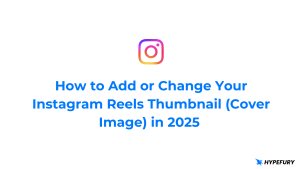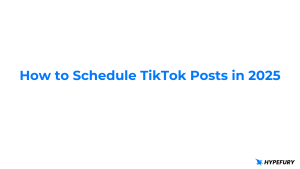Why do CEOs have personal Twitter brands?
Recently, CEOs have become increasingly present on social media. From the explosion of content creation to social media marketing, it’s becoming advantageous for company personnel to build public brands on the internet, and a company’s CEO is of course the most important person of all.
Previously, over 80% of Fortune 500 CEOs did not have an active Twitter profile. However, the current generation of CEOs, who are also diverse and likely lead companies more conversant with technology, are more likely to have developed an active Twitter profile and are also comfortable using it to communicate as leaders.
Twitter is the ideal platform for CEOs because of its communication model. They are able to interact directly with their users and investors, and the app’s interface gives an illusion of intimacy between the creator and consumer that CEOs can take advantage of.
Interested in following their lead? Then keep on reading!
This article will present ten CEOs that are using Twitter to benefit their company, primarily in terms of sales and conversion.

David Perell
David Perell is an online writer and the CEO of Write of Passage, an online writing school. He is on a mission to teach thousands of people to write online, share their ideas, and build an online audience, and has created an online course in order to do just that. In five weeks of intense instruction, he gives hundreds of students the tools to publish their ideas, build their audience and accelerate their career. The essence of the course is described in his essay, The Ultimate Guide to Writing Online. Students also leave with a network of friends who share their curiosity for learning.
David thrives on ideas and concentrates on visually appealing content. He creates content that simplifies difficult models into digestible form all while regularly introducing his community to new ideas. This thread below is a good example of how he combines visuals and the simplification of ideas, in which he talks about how to improve the internet and includes ideas of other thought leaders, but ultimately ends the thread with a mini-essay he wrote himself. He subtly conveys with each tweet and thread that he is a word expert, which one way or the other means conversion for Write of Passage!
The Internet's recency bias is bad for humanity. Our social media feeds prioritize recency over quality, which robs us of wisdom and makes us obsessed with the news.
How to improve the Internet:
— David Perell (@david_perell) September 6, 2022
More directly, David also takes advantage of his viral tweets. Here he conveys what writing is about and ends the tweet with his free email course on writing. Additionally, this tweet sparked a conversation about writing and you can see him and his students talking about the benefits of his course. This is a great example of organic conversion from a personal Twitter brand!
Emma Bates
Emma Bates is the CEO of Diem, a company building a search engine and a community for women and non-binary people that thrives on ideas. Diem exists because the majority of information for women and non-binary people on the Internet today comes from people in the business of promoting items for profit, ranking for search results, and producing hot takes for shock value. They want to create a place where the candid conversations that women and non-binary people have with each other — “about friendships, birth control, toxic masculinity, harassment, chronic pain, big career moves, enthralling books, easy recipes, and everything in between” — become resources. They are trying to build technology that allows for empathy.
In this thread, Emma addresses a topic women have often felt uncomfortable talking about – their periods.
why am i working on my period?
— Emma Bates (@EmmaSHBates) November 22, 2022
She talks about the intersection of periods and the workplace, the culture around that, and how it can be improved. In this short thread, she expresses what her company Diem is doing to move this conversation and how people can contribute their thoughts. The thread is also a short piece of content to point people to something more detailed that she has created on Diem. Threads like this display the CEO’s personal Twitter brand and ideas and users interested can engage with the application as directed.
Odun Eweniyi
Odun Eweniyi is the co-founder of PiggyVest, a fintech savings and investment platform based in Nigeria. She has five years experience in Business Analysis and Operations and she created PiggyVest “to give everyone the power to better manage & grow their finances.” Odun’s approach to posting on Twitter is a lot more casual than it is formal. Her account has gained traction for advocating for women’s rights and being a thought leader for Nigerian financial technology conversations on Twitter.
The greater fool theory suggests that one can sometimes make money through the purchase of overvalued assets — items with a purchase price drastically exceeding the intrinsic value — if those assets can later be resold at an even higher price.
— Demotivational Speaker (@OdunEweniyi) July 5, 2022
On her account, she responds to users’ comments and feedback about the application and she shares links to more detailed resources about PiggyVest and what they’re accomplishing. Additionally, she creates content that shows her unique expertise and authority in finance. Through her personal Twitter brand, she has built a community that can trust her in the industry she works in.
Anne-Laure Le Cunff
Anne-Laure Le Cunff is an educator, writer and researcher. She loves “helping people think better, learn faster and work happier” and founded Ness Labs, a learning community for people who want to achieve more without sacrificing their mental health.
She shares her love for learning on her Twitter account. In this thread, she analyzes the relationship between artificial intelligence and creativity and the tools that are essential to it. She goes on to link to an in-depth article on Ness Labs that she created on this topic for her users.
I started my newsletter with a personal challenge: writing 100 articles in 100 days. It was HARD.
Three years later, I wondered: how long would it take to write 100 articles today?
👇
— Anne-Laure Le Cunff (@neuranne) October 26, 2022
She also shares her journey with interesting experiments, the results of these and how she implements them in her company. That way, she’s created a unique feedback loop.
Yannick Veys
Hypefury co-founder Yannick Veys has been an entrepreneur for almost 15 years. Before this current period, he’d already helped grow a Dutch startup to over 3M ARR. Hypefury has features that optimize each user for content creation and scheduling.
Tweetbot and a couple of others. I have the names in the article I wrote.
— Yannick Veys – Marketing & Growth (@Yannick_Veys) January 17, 2023
Yannick’s account and content mainly focuses on informational threads. He shows off his expertise on all things social media marketing and Twitter. In this thread, he explains everything one needs to start a marketing career. He links to multiple videos that his users can get a ton of value from. Similarly, he provides unique insight on Twitter and how it can be used.
Jack Butcher
Jack Butcher is the founder of Visualize Value, a highly-specialized consulting company and a product business that scales infinitely. Since he’s the CEO of a business that runs on visuals, his personal account optimizes for this as well. His tweets feature visuals that detail the progress and execution of the work he does for Visualize Value. In a recent thread, he documents his use of the RBG color model in his work, the progression and the ultimate creation.
"The RGB color model is additive in the sense that the three light beams are added together, and their light spectra add, wavelength for wavelength, to make the final color's spectrum."https://t.co/f7xRSJUfrC pic.twitter.com/g3DO1uXwVR
— jack (@jackbutcher) January 18, 2023
Olúwatósìn Olaseinde
Olúwatósìn Olaseinde is an ICAN (Institute of Chartered Accountants of Nigeria) chartered accountant. She has been in this line of work – straddling taxation, auditing, financial journalism, and corporate finance – for more than 11 years. Since January 2018, she’s been giving monetised advice on Twitter to millennials and Gen Zs whose dream is to make money and leave poverty behind. Famous in the personal finance niche, Olúwatósìn commands such unprompted brand recall that her name is now symbolic with money. She is the CEO of Money Africa, a subscription-based financial edtech platform. Tweet by tweet she cements her expertise in personal finance and shows why her audience should trust her advice not only on her account but in Money Africa.
How to manage your finances this Detty December
1.) Take the portion of money that you do not plan to spend and lock it away.
2.) Draw up a flexible budget with the amount you plan to spend
3.) Leverage on free outings such as house parties or company events
4.) Learn to say No— Olúwatósìn Olaseinde (@tosinolaseinde) December 3, 2022
Greg Isenberg
Greg Isenberg is an internet community builder and the co-founder/CEO of Late Checkout, a product studio and agency that designs, creates and acquires community-first tech businesses.
Greg employs both text and visuals for his personal Twitter brand. Here he explores a framework for product building and in the tweet below, he uses visually appealing pictures to explain product building.
There are 6 types of successful products pic.twitter.com/zdiyUWo7yn
— GREG ISENBERG (@gregisenberg) January 17, 2023
Khe Hy
Khe Hy is the CEO of Rad Reads, a blog about transforming your relationship with time, work, money – and ultimately yourself. His writing and consulting is fluff-free and promises to push you out of your comfort zone.
How old will your kids be if you die at 85?
Here are 4 bizarre insights that will make you want to work waaaay less:
— Khe Hy (@khemaridh) March 12, 2022
His personal Twitter brand centers around productivity and how to balance living a meaningful life with one’s work.
Dan Shipper
Dan Shipper is the CEO of Every Collective, a writer collective offering a bundle of business focused newsletters that provide analysis and commentary from the practitioner’s perspective.
His Twitter personal brand details how he explores his curiosity and learnings. This thread below conveys an experiment Dan did with ChatGPT and its results. At the end, he links to Every as a more detailed resource.
I loaded journal entries from the past 10 years into GPT-3 and then started asking it questions:
– What do I need to learn?
– What do I not realize about myself?
– What's obvious to everyone around me, but not to me?
– What are my deepest hopes?The results are…pretty wild.
— Dan Shipper 📧 (@danshipper) January 19, 2023
In conclusion, companies now have to be more and more people-centered and CEOs building a personal brand online can dramatically help with that! If you have a business too and want your customers to feel more connected to you, working on your online presence is a great step to take. Check out Hypefury’s ultimate guide to Twitter marketing to take your brand to the next level!



